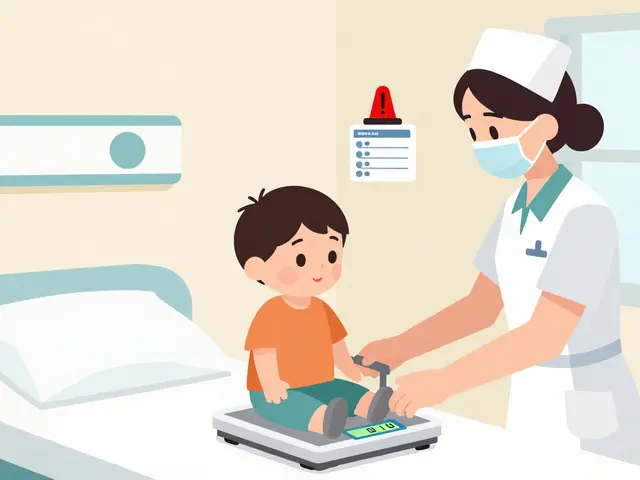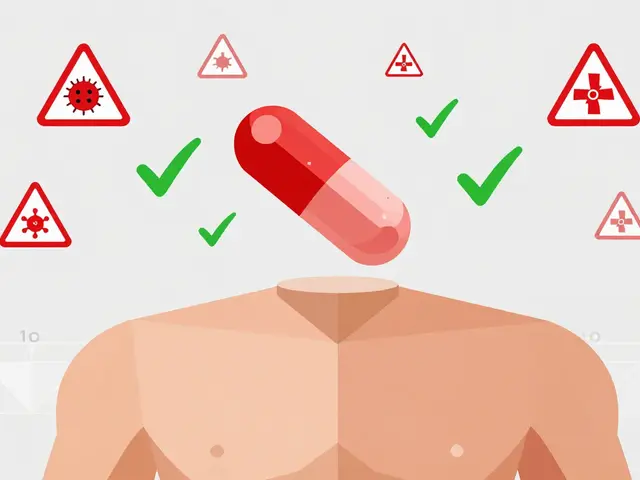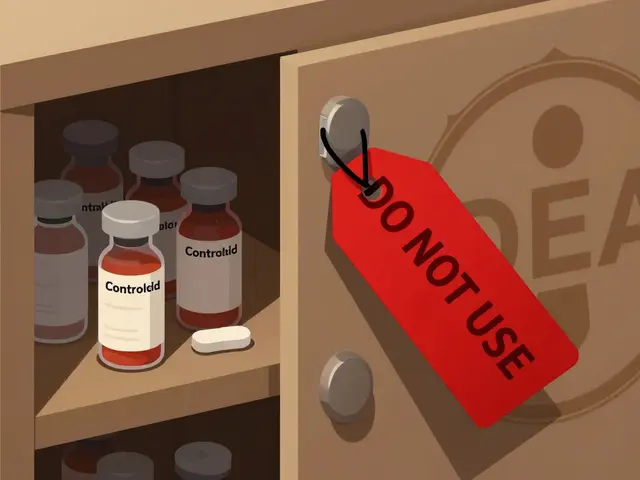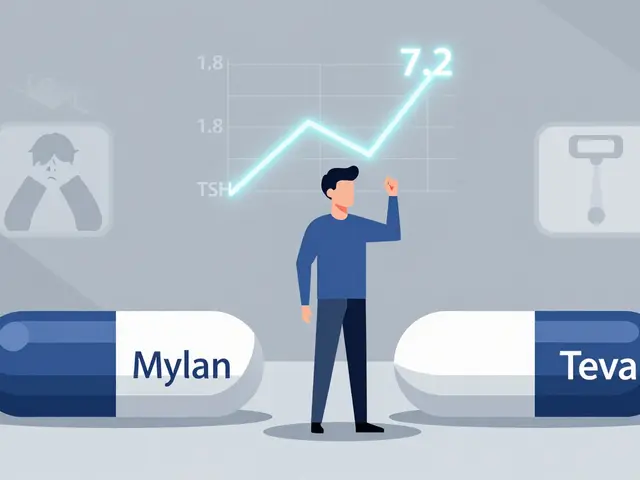Neoral Cyclosporine: What to Know Before You Take It
Neoral is a brand of cyclosporine — a powerful immunosuppressant used to prevent organ rejection and to treat certain autoimmune conditions. It can protect a transplanted kidney, heart, or liver, but it also requires careful monitoring because it affects the kidneys, blood pressure, and immune defenses. This page gives straightforward, practical facts so you know what to watch for and what questions to bring to your doctor.
How Neoral works and how it's given
Cyclosporine works by slowing parts of your immune system that would otherwise attack transplanted organs or cause inflammatory disease. Neoral is a microemulsion form designed for more consistent absorption than older cyclosporine products. Your dose is tailored to your weight, condition, and lab results — expect frequent blood checks early on and dose adjustments based on those results.
Take Neoral exactly as prescribed. Try to take it the same way each day (with or without food) because food and timing can change how much drug gets into your bloodstream. If you miss a dose, follow your prescriber's instructions rather than guessing.
Key safety tips
- Get regular blood tests: doctors check cyclosporine levels, kidney function (creatinine), liver tests, blood pressure, and lipids. Early on this may be weekly, then less often once stable.
- Watch kidney function: rising creatinine or reduced urine output should prompt quick contact with your care team.
- Expect side effects: high blood pressure, tremor, increased hair growth, and higher cholesterol are common. Tell your provider about anything new or bothersome.
- Infection risk: Neoral lowers your defenses. Avoid close contact with sick people and report fevers, chills, or sore throats right away.
- Pregnancy and breastfeeding: cyclosporine has risks and must be discussed with your specialist before conception or while breastfeeding.
Common interactions to watch
Certain drugs and foods change cyclosporine levels and can cause harm or reduce benefit. Avoid grapefruit and grapefruit juice — they can raise cyclosporine levels. Tell every provider and pharmacist you use Neoral. Notable interactions include:
- Strong CYP3A4 inhibitors: some antifungals (ketoconazole, fluconazole), certain antibiotics (clarithromycin), and HIV meds can raise cyclosporine levels.
- CYP3A4 inducers: drugs like rifampin or some seizure medicines can lower levels and risk organ rejection.
- Statins and some blood pressure drugs: combined with cyclosporine they can raise the chance of muscle or kidney problems; your doctor may change doses or monitor closely.
- NSAIDs: ibuprofen and similar drugs can add kidney stress when used with Neoral — avoid regular use unless approved by your doctor.
If you switch between cyclosporine brands or formulations, expect extra lab checks — absorption can differ. Store Neoral at room temperature away from heat and light. Always carry a list of your medications and tell any treating clinician you are taking cyclosporine. Questions about dosing, side effects, or interactions are worth a quick call to your transplant or prescribing team — they handle these drugs daily and can help you stay safe while getting the benefit you need.
Wondering how and where to buy Neoral online? I explain how to find legit suppliers, what to watch out for, and practical tips for safe and secure Neoral purchases.
Continue reading...






